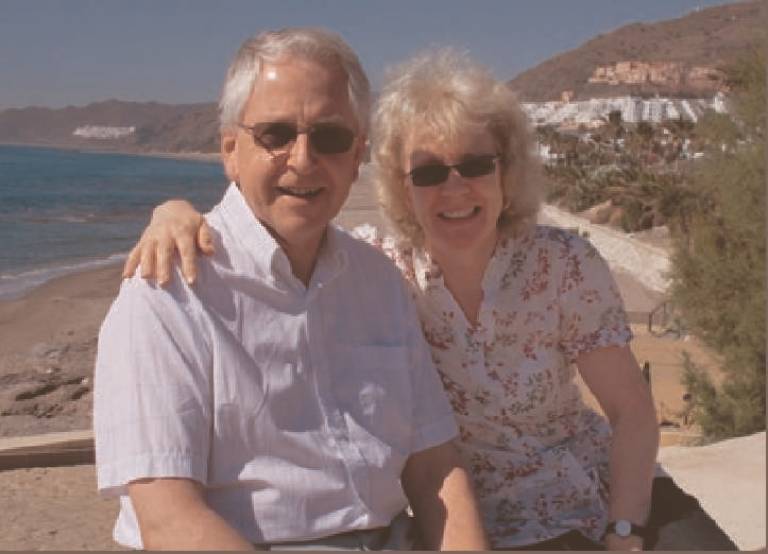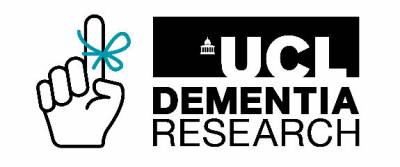Andy's story: Dealing with Dementia

1 January 1970
Maggie Williams's husband Andy was diagnosed with posterior cortical atrophy (PCA) in 2011. The PCA Support Group run by UCL's Dementia Research Centre has helped them both adjust to the implications of this life-changing diagnosis.
Before diagnosis
Before his diagnosis, Andy had been enduring tough times. He had been made redundant twice and had recently lost his brother. When he began to experience other problems, particularly with driving, it was initially put down to stress. As is often the case with PCA - a form of dementia that affects the visual areas of the brain - it was problems with vision that proved the key to diagnosis. "We went and had an eye test done," says Maggie, "and the optician picked up early stage cataracts. We then got referred on to an ophthalmic surgeon. He was very much on the ball, and he picked up that there was something else going on. We had a brain scan and it just went from there."
Formal diagnosis
Andy was formally diagnosed in December 2011, yet in retrospect Maggie believes the signs were present years earlier: "Looking back, we saw the start of symptoms in 2008. As you do, you just think it is something else." By the time all the tests had been completed, Maggie already had an inkling of what Andy's problem was: "To get a diagnosis was a relief. We knew then what we were dealing with. As horrible as it is, we knew then what it was."
Since then, the family has been adjusting to the new circumstances. Andy is in the early stages of disease and Maggie is able to leave him on his own, continuing to work part-time. Perhaps the biggest blow to Andy has been the fact that he can no longer drive, as much of his working life had been spent on the road. "That was a shock for him," says Maggie. With their children returning to live at home, it is, says Maggie, "a busy house", and the family tries to minimise the impact of Andy's diagnosis. "At the time it was awful," says Maggie, "but you just accept it. You live your life around it. You carry on as best you can. Though I have a good sob most days, out of earshot of anyone else!'
PCA Support group
What has been a great help, she adds, is the PCA Support Group. Through regular meetings in London, a newsletter and other mechanisms, she has been able to make contact with other families in a similar situation. She and Andy have been able to find out practical information about the benefit system and other support that is available. Hearing first hand from people who have navigated the system has been invaluable. The social contacts they have made have also been enormously helpful, though tinged with sadness. "You see people that are further on in the journey, and it's heart-breaking. But you need to be aware of what is ahead."
Through the PCA Support Group, Maggie and Andy met Dr Sebastian Crutch, and volunteered to take part in research being carried out at the DRC. Both have been taking part in studies examining their vision and visual memory, an experience both have enjoyed. "It's lovely, the staff there are very helpful, you meet like-minded people." For people like Andy, few therapeutic options are available. He has been prescribed Aricept, which may slow the decline of Alzheimer's and other forms of dementia in some patients. "We think it's helping," says Maggie, Andy's memory score having improved on his last clinical assessment. She laments the lack of funding for dementia research, which bears little relation to the enormous clinical and economic impact of the condition. And attitudes more generally still need to change, she suggests: "It's still got a stigma attached to it. Alzheimer's disease and dementia in general, it's like cancer was 10-15 years ago. You mention that and people just run away. Which is very sad."
- Information about the PCA Support Group, run in partnership with the National Hospital for Neurology and Neurosurgery and with support from the Myrtle Ellis Fund
 Close
Close


